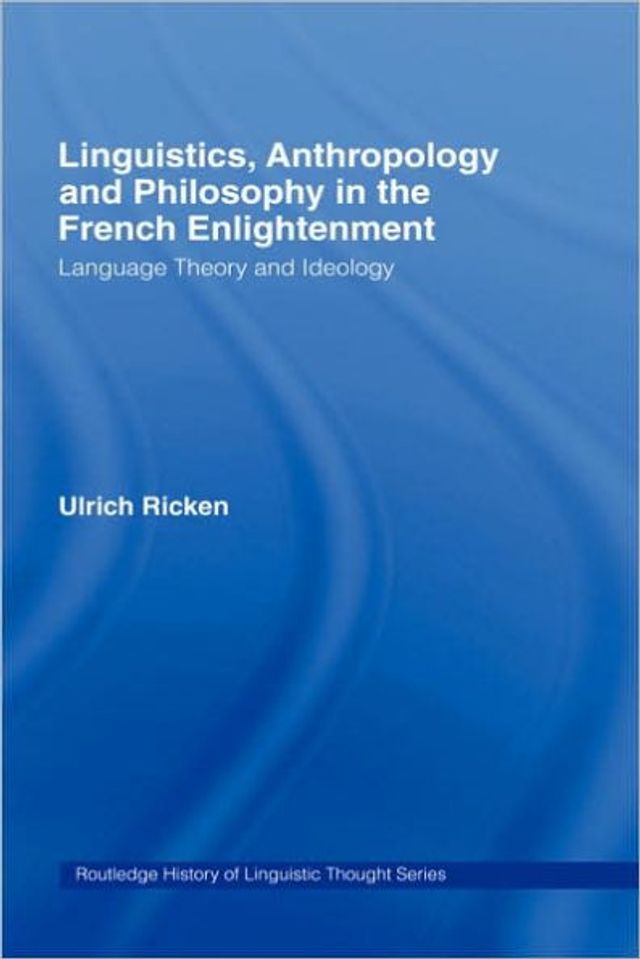Home
Linguistics, Anthropology and Philosophy in the French Enlightenment: A contribution to the history of the relationship between language theory and ideology / Edition 1
Barnes and Noble
Linguistics, Anthropology and Philosophy in the French Enlightenment: A contribution to the history of the relationship between language theory and ideology / Edition 1
Current price: $260.00


Barnes and Noble
Linguistics, Anthropology and Philosophy in the French Enlightenment: A contribution to the history of the relationship between language theory and ideology / Edition 1
Current price: $260.00
Size: OS
Loading Inventory...
*Product information may vary - to confirm product availability, pricing, shipping and return information please contact Barnes and Noble
Linguistics, Anthropology and Philosophy in the French Enlightenment
treats the development of linguistic thought from Descartes to Degerando as both a part of and a determining factor in the emergence of modern consciousness. Through his careful analyses of works by the most influential thinkers of the time, Ulrich Ricken demonstrates that the central significance of language in the philosophy of the enlightenment, reflected and acted upon contemporary understandings of humanity as a whole. The author discusses contemporary developments in England, Germany and Italy and covers an unusually broad range of writers and ideas including Leibniz, Wolff, Herder and Humboldt. This study places history of language philosophy within the broader context of the history of ideas, aesthetics and historical anthropology and will be of interest to scholars working in these disciplines.
treats the development of linguistic thought from Descartes to Degerando as both a part of and a determining factor in the emergence of modern consciousness. Through his careful analyses of works by the most influential thinkers of the time, Ulrich Ricken demonstrates that the central significance of language in the philosophy of the enlightenment, reflected and acted upon contemporary understandings of humanity as a whole. The author discusses contemporary developments in England, Germany and Italy and covers an unusually broad range of writers and ideas including Leibniz, Wolff, Herder and Humboldt. This study places history of language philosophy within the broader context of the history of ideas, aesthetics and historical anthropology and will be of interest to scholars working in these disciplines.









